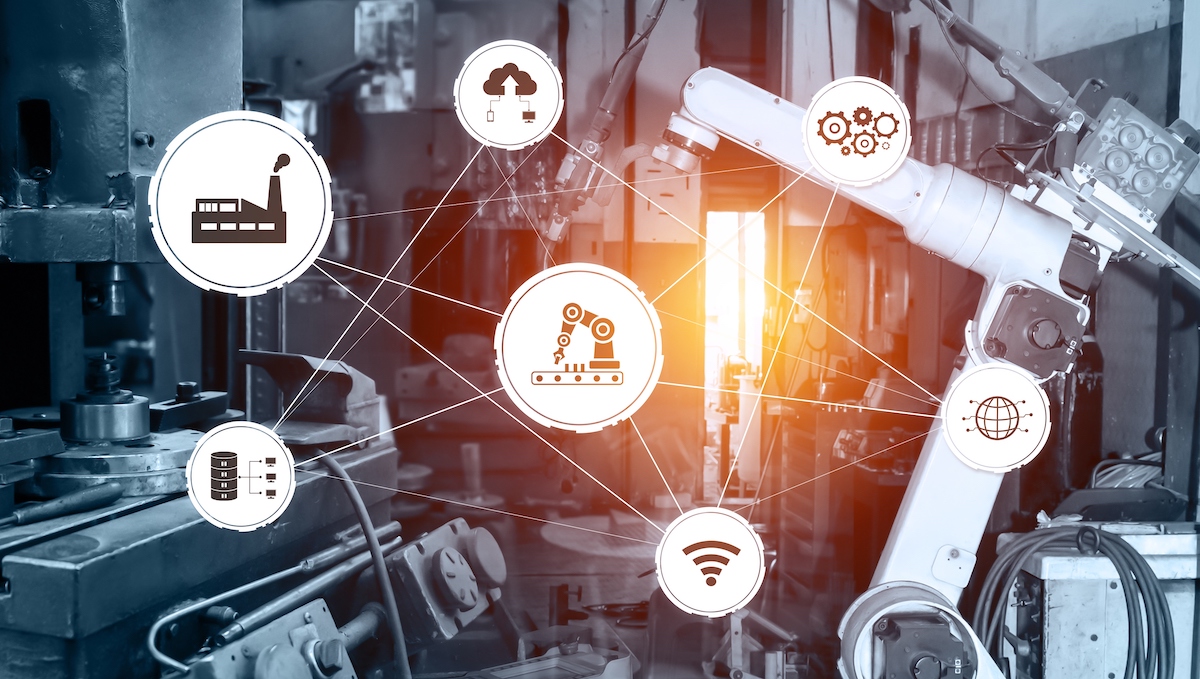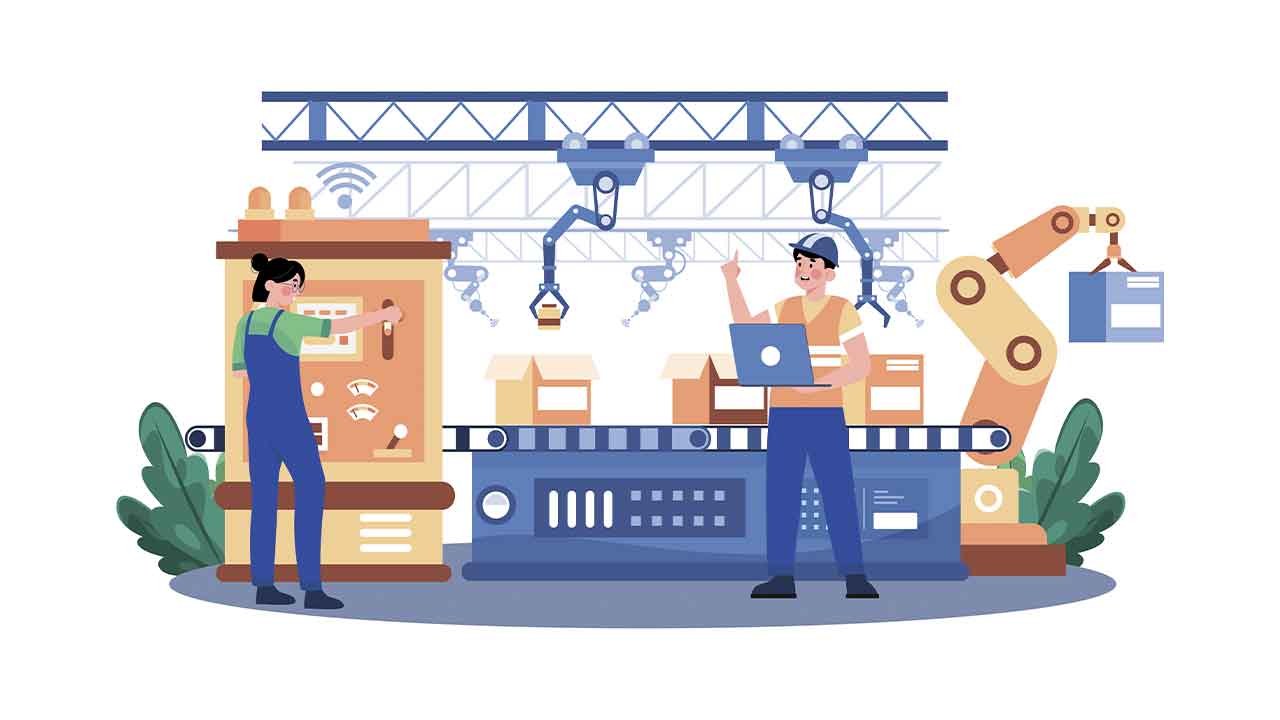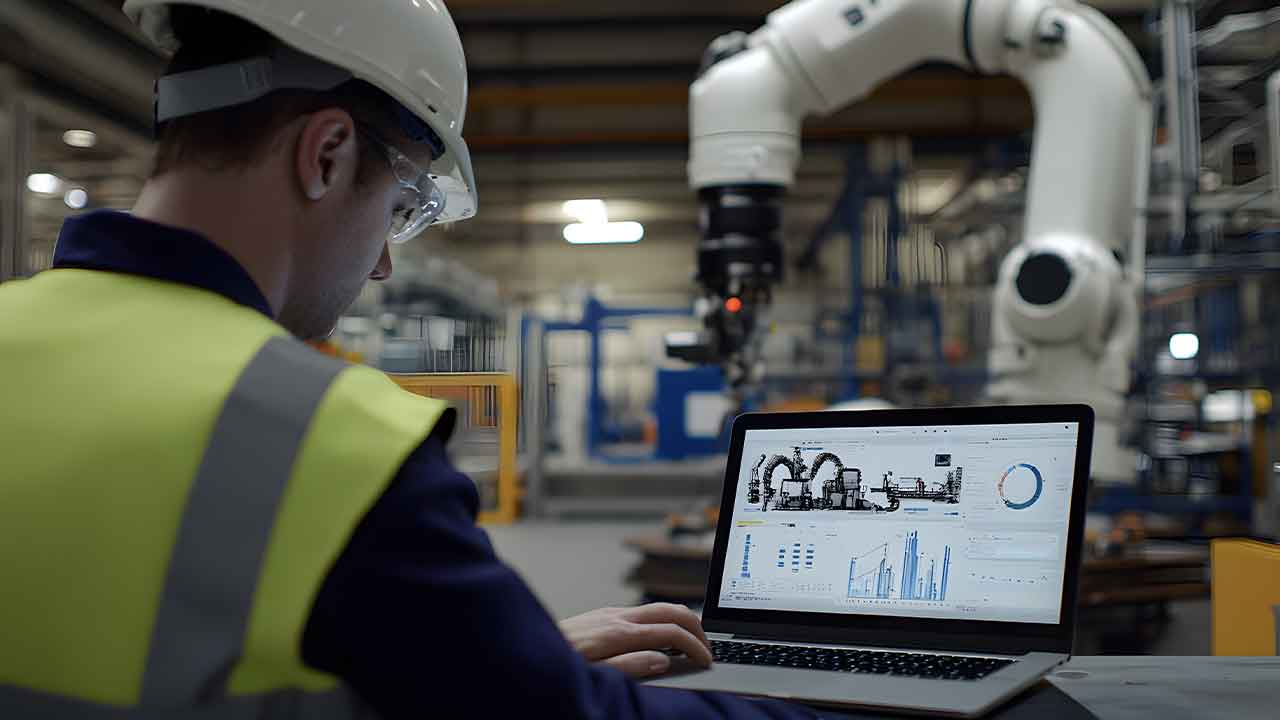Connected Manufacturing: What it is and Why it is Important
Modern manufacturing has undergone profound changes in the past two decades due to the advent of advanced technology and the digital age. Among these changes is the move towards connected manufacturing, which is known as Industry 4.0.
As a result of this approach, manufacturers can use AI, machine learning, and IoT to improve operations, reduce downtime, and ensure quality.
In this post, we will explore connected manufacturing in more detail, specifically in the CNC industry, and why it is essential for manufacturers to embrace this trend to stay competitive in today’s marketplace.
What is Connected Manufacturing?
Connected manufacturing is a system designed through the integration of advanced technologies such as the Internet of Things (IoT), Artificial Intelligence (AI), and cloud computing to enable intelligent communication, automation, and control of manufacturing processes.
The purpose of connected manufacturing is to provide manufacturers with an interconnected ecosystem capable of transferring data between various aspects of their manufacturing process.
Ultimately, connected manufacturing is about establishing a data-driven, real-time, intelligent, data-driven approach to manufacturing. In addition to eliminating bottlenecks, this approach enables real-time production monitoring, predictive maintenance, and enhanced collaboration between workers and machines.
Businesses can increase productivity, improve product quality, reduce operational costs, and reduce time-to-market with connected manufacturing.
Why Is Connected Manufacturing Important?
Connected manufacturing is becoming increasingly important in the CNC industry, enabling manufacturers to achieve greater efficiencies and productivity.
By connecting machinery, devices, and systems, manufacturers can access real-time data about production processes, which enables them to identify bottlenecks, improve efficiency, and reduce downtime.
Here are some of the critical benefits of connected manufacturing:
1. Improved Efficiency and Productivity
Connected manufacturing enables manufacturers to monitor production processes in real time, identify bottlenecks, and take action to improve efficiency. Manufacturers can reduce downtime and increase productivity by using real-time data to optimize production processes.
A manufacturer can, for example, identify and prevent maintenance issues with IoT-connected sensors before they become significant problems, reducing downtime and increasing efficiency.
2. Better Quality Control
Connected manufacturing also enables manufacturers to improve quality control by providing real-time data about production processes. By monitoring production processes in real-time, manufacturers can identify quality issues early and take action to address them before they become major problems.
For example, manufacturers can analyze production data using machine learning algorithms to detect quality issues. When manufacturers identify these issues early on, they can take action to resolve them before they negatively affect the quality of the final product.
3. Improved Safety
Connected manufacturing can also help to improve safety in the manufacturing environment. By using IoT-enabled sensors to monitor machines and equipment, manufacturers can identify safety issues before they become significant problems.
Identifying overheating concerns earlier can help manufacturers avoid safety hazards in the future. For example, manufacturers can monitor the temperatures of machines and equipment to identify potential safety hazards in advance.
4. Reduced Costs
Connected manufacturing can also help to reduce costs by optimizing production processes and reducing downtime. By using real-time data to identify bottlenecks and inefficiencies, manufacturers can take action to improve efficiency and minimize downtime.
For example, by using machine learning algorithms to analyze data from production processes, manufacturers can identify areas where energy usage can be optimized, which can help to reduce costs.
5. Greater Flexibility
Connected manufacturing also enables manufacturers to achieve greater flexibility by quickly adapting to changing market conditions. Manufacturers can quickly identify trends by using real-time data to monitor production processes and adjust production accordingly.
In the event of an unexpected increase in demand for a particular product, manufacturers can quickly adjust production schedules.
Why Connected Manufacturing Matters to the CNC Industry
The CNC industry is one of the most critical sectors that can benefit significantly from connected manufacturing. Connected manufacturing enables CNC businesses to automate their production processes, streamline operations, and improve the quality of their products.
CNC turning machines and centers play an essential role in connected manufacturing. They allow for real-time monitoring, automation, and data analytics, ultimately improving productivity, quality, and flexibility. Learn the importance of adopting IoT for manufacturing sector.
Below are some of the reasons why connected manufacturing matters to the CNC industry:
Improved Productivity:
Connected manufacturing enables CNC businesses to automate their production processes, reducing the time required to complete tasks. This increases productivity and ultimately leads to faster time-to-market.
Better Quality:
Connected manufacturing enables CNC businesses to monitor production processes in real time, reducing the risk of quality issues. This ultimately leads to better product quality and increased customer satisfaction.
Enhanced Flexibility:
Connected manufacturing enables CNC businesses to respond quickly to changing customer demands and market conditions. The interconnected ecosystem enables CNC businesses to quickly adapt their production processes to meet new needs.
Reduced Downtime:
Connected manufacturing enables CNC businesses to monitor machine performance in real-time and identify potential issues before they become a problem. This reduces the risk of unexpected breakdowns and improves machine uptime, ultimately leading to better productivity.
Improved Cost Management:
Connected manufacturing enables CNC businesses to monitor their production processes and identify areas where costs can be reduced. This helps to improve cost management and increase profitability.
Wrapping Up
In the CNC industry, connected manufacturing is becoming increasingly important, allowing manufacturers to achieve greater efficiencies and productivity.
Utilizing technologies such as IoT, AI, and machine learning is a great way for manufacturers to improve efficiency, reduce downtime, control quality, increase safety, reduce costs, and realize greater flexibility.
With manufacturing becoming more competitive, connected manufacturing will play a critical role in success.
About the author
 Vincent Hua is the Marketing Manager at TSINFA. He is passionate about helping people understand high-end and complex manufacturing processes. Besides writing and contributing his insights, Vincent is very keen on technological innovation that helps build highly precise and stable CNC Machinery.
Vincent Hua is the Marketing Manager at TSINFA. He is passionate about helping people understand high-end and complex manufacturing processes. Besides writing and contributing his insights, Vincent is very keen on technological innovation that helps build highly precise and stable CNC Machinery.



